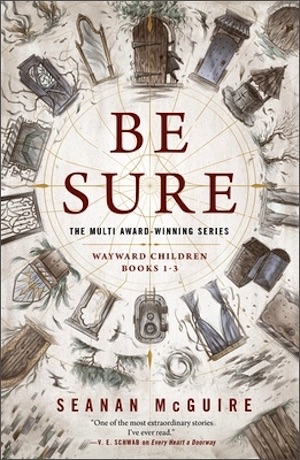Welcome to Close Reads! In this series, Leah Schnelbach and their guests dig into the tiny, weird moments of pop culture—from books to theme songs to viral internet hits—that have burrowed into our minds, found rent-stabilized apartments, started community gardens, and refused to be forced out by corporate interests. This time out, Melissa Kagen reevaluates Jumanji’s amazing Aunt Nora.
When Aunt Nora, played by Bebe Neuwirth, walks into the old Parrish house, it’s rusted and weathered by the years since little Alan Parrish disappeared into a malevolent board game. But Aunt Nora, with charcoal gray beret and unshakeable enthusiasm, sees nothing but potential. She’s planning to turn it into a bed and breakfast, she tells the real estate agent, taking off her gloves and mentally rearranging the furniture. “Judy, Peter, come look at this!” she calls. “Is this something, or what?” Her brother and his wife died recently in a car crash in Canada, and she has taken in her niece and nephew, uprooting whatever her life had been before.
Aunt Nora then delivers a magical cleaning montage, transforming the entire mansion from dilapidated to livable in a single day. Her outfit, her music choices, her laser-focus, the rooms before and after—it’s practically as impossible as the infernal board game plot in the foreground of the movie. And she manages to cook and serve a healthy dinner when the children come home? And then only lightly snaps at Kirsten Dunst’s Judy when the girl sneers at the literal mansion Aunt Nora single-handedly purchased to house them all? All hail Aunt Nora.
As a child devouring this movie when it came out in 1995, I sympathized (of course) with innocent and imperiled white tweens Judy and Peter—a new school with no friends? Dead parents? An ominous adventure brewing? Check, check, and check. But rewatching it in my 30’s, I found myself enraptured by Bebe Neuwirth’s cheerful competence. Her 37-year-old Aunt Nora offers such bright, life-maintaining energy. A tragedy fell on this family, but Aunt Nora steps up. This town might be falling apart, and these kids might be traumatized and grieving, but Aunt Nora has the creative wherewithal to make this haunted house a home.
Then, rather gleefully, the rest of the movie destroys her. As the game’s monsters are unleashed, they demolish one room of the mansion after another, culminating in a monsoon that floods the house with water and literally blasts Nora off her feet as she comes home to check on the kids. We get a shot of her horrified face as she takes in the damage that Jumanji has wrought on this house she just bought, before her nephew traps her in a closet. We never see her again. When the protagonists win the game, Nora gets completely erased by the reversed timeline. Judy and Peter’s parents are saved from their car crash, ergo no need for her to appear at all.
Buy the Book


Be Sure
And look, it’s not about Aunt Nora, ok? The stakes of this movie are huge. Robin Williams’ Alan Parrish is a truly tragic figure—sucked into the game and trying to survive the constant threat of death in Jumanji for 26 years, returning to find his parents dead and his town in shambles. Williams plays it so straight that the film becomes more drama than adventure. What’s Aunt Nora’s little heartbreak, compared to that? She’s probably doing fine in that alternate timeline.
In the third and most recent film in the franchise—Jumanji: The Next Level (2019)—Jumanji has become a videogame instead of a board game. Two grandfatherly types, played by Danny DeVito and Danny Glover, are having coffee upstairs when the (still imperiled, but not entirely white!) teens touch the controller. The two older men accidentally get pulled into the game alongside the teens, hilarity and body-swapping antics ensue. And these two, they really get to play! Rather than the terrifying stakes of the 1995 version, or the less-perilous-but-still-tense stakes of 2017’s Jumanji: Welcome to the Jungle (in which the four teens seriously fear they have only 2 lives to waste until they die for real), the 2019 film has DeVito’s and Glover’s characters hashing out old differences, not understanding the concept of a videogame, and costing everyone unnecessary lost lives, with barely more reaction than an eye roll from the crew. DeVito’s Eddie complains that Glover’s Milo robbed him of purpose when he forced them to sell their restaurant. Now the place is called Nora’s, and “it’s barely even a restaurant. More like a breakfast place now.”
My ears perked up. Nora’s? An alternate universe version of her bed and breakfast, at last? Could it be?
It could! But first, Eddie and Milo need to complete a full hero’s arc. The two work together to win the game, and then say a tearful goodbye when terminally-ill Milo chooses to remain inside Jumanji forever (again, this is not Alan Parrish’s horrorscape). And it’s very touching! It’s the kind of arc that two female characters over 35 would absolutely never get in a story about gaming.
Because the thing is, adult woman aren’t really supposed to play. In Shira Chess’ brilliant book on feminine modes of gaming, Ready Player Two, she explains how the gaming industry has historically designed female-coded games with a stereotypical woman in mind—specifically, a mother. “As presumed mothers,” she writes, “their play was meant to be necessarily productive, filling holes of time or functioning as a backdrop to emotional labor.” And so, she notes, “issues of women and play have been inextricably linked to issues of time: what a woman considers play or leisure is not necessarily defined only by the activities she enjoys, but by the activities that fit neatly and cheaply into her fragmented schedule.” The broadly maligned games designed for and popularized by middle-aged women (like Candy Crush or Farmville) thus tend to be mini, escapist chunks, to be fit in between the cracks of a chore-filled day, rather than the type of game that features a broad, sweeping adventure. Such adventures only tend to be made possible in games with 5-hour (or maybe 26-year) play sessions. At one point of the book, Chess depressingly argues that merely facilitating other player’s enjoyment is presented as the equivalent of fun leisure time for women when it comes to gaming. Not only are middle-aged women discouraged from playing vast epics themselves, they are made responsible for enabling play—buying and cleaning the mildewed mansion in which play will occur—and then told that’s quite enough fun for them to be having, thank you very much.
So, of course it’s not about Aunt Nora. It’s really never supposed to be.
At the end of the 2019 film, Bebe Neuwirth comes back in a cameo. She is indeed the one who bought the restaurant—Nora’s—and created yet another delightful space for traumatized youths to rest and heal. The gang troops there to eat pancakes. When Nora treats Eddie with deference as the former owner, he flirts with her, showing he is no longer resentful that she committed the crime of buying his business. Nora takes this gross overture in her workplace with grace, because of course she does. I hope she’s happy with her success—damn, Nora, your restaurant looks awesome, and you continue to amaze me—but I mostly hope that she sometimes gets to close up shop, sit down, and just have fun.
Melissa Kagen researches and teaches interactive storytelling, TTRPGs, escape room design, immersive performance, and critical game studies at Worcester Polytechnic Institute. She got her PhD from Stanford, and her first book, Wandering Games, is out now from MIT Press. She likes biking, eating vegan food, and accumulating notebooks. You can find her online at her site and on Twitter.










